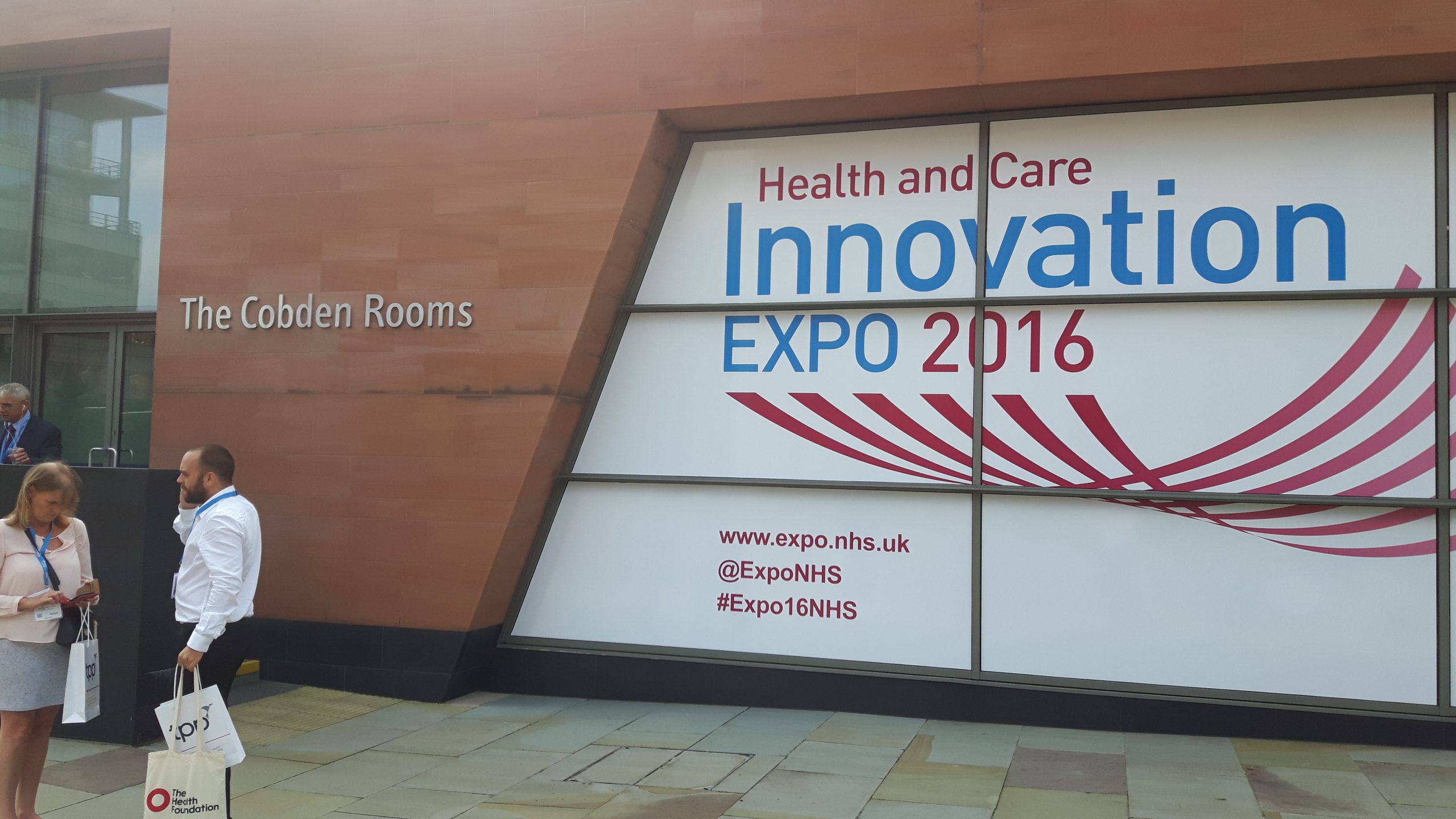‘Perverse disincentives’ blocking NHS from taking up innovation

Frontline clinicians looking to introduce innovation to the NHS face many obstacles – even including hospitals gaining income from treating avoidable harm to patients.
This was the starkest illustration of how the NHS can block innovation, discussed today at the Health and Care Innovation Expo in Manchester by a panel of frontline staff trying to overcome these obstacles.
The Expo is dedicated to generating excitement and momentum behind change and new ideas in the NHS – but the reality of a fragmented health service under huge financial pressure was very apparent.
Ashish Pradhan, a consultant in obstetrics and gynaecology has developed a specially adapted pair of surgical scissors which reduce the risk of human error in performing an episiotomy - a surgical cut to the perineum and vaginal wall often performed during childbirth to help deliver the baby.
However standard practice episiotomies can cause obstetric anal sphincter muscle injuries and have a devastating impact on a new mother’s life, with the most serious injuries leading to anal incontinence.
Ashish Pradhan worked with his colleague Dharmesh Kapoor to develop the Episcissors 60 to ensure doctors make the cut at the correct 60 degree angle, with the hope of eliminating any injuries.
However, he said there was significant inertia and even resistance against the innovation – not least because hospital trusts fear losing out on income derived from subsequently treating women with these injuries.
“Clinicians face this problem on a daily basis – there often seems to be a financial disincentive to taking up innovation,” said Mr Pradhan.
This case is one of the most alarming examples of NHS organisations failing to improve care because of obstacles to change, especially the fragmented nature of the health service.
Hospitals frequently maintain outdated ways of working because even when new techniques offer savings, those savings will go to other organisations in the system (such as a CCG), while it will lose income.
The Episcissors 60 are just one of the innovations which have now been adopted by the new NHS Innovation Accelerator (NIA), with the aim of breaking down these barriers.
The NIA was launched in 2015, and is aimed at creating a “cultural change to allow proven innovations to be adopted faster and more systematically” throughout the NHS.
This definition of innovation deliberately excludes pharmaceuticals, and instead focuses on medical devices, digital solutions and new models of care which otherwise struggle to gain NHS funding.
In its first year, 17 fellows were named on the programme. They received support to take their ‘high impact’ innovations to more than 345 NHS providers and commissioners, raised over £8.9m in funding and won 12 awards.
Another round of projects have just been reviewed for funding, with the winning applications to be announced in October. The focus areas for the projects were prevention, early intervention and long term condition management.
However, this programme didn’t address the fundamental lack of funding routes into the NHS for new medical devices and apps.
To address this, NHS England’s chief executive Simon Stevens announced a new innovation and technology tariff aimed at providing a clear route to market for this kind of innovation.
Stevens said the new tariff will remove the need for multiple local price negotiations, and instead guarantee reimbursement when an approved innovation is used.
Episcissors-60 is already being used in 15 UK hospitals and the ambition for the NIA programme is to accelerate broader uptake into UK clinical practice.
Another frontline innovator speaking was GP and digital health specialist Keith Grimes.
He has championed the adoption of a new smartphone-enabled electrocardiogram, AliveCor’s Kardia Mobile. The device is low cost and allows GPs and even patients themselves to monitor their hearts for signs of atrial fibrillation, one of the leading causes of strokes.
But he warned that even the most dazzling new technology required those introducing it to get the buy-in from frontline users.
“Simply promoting the technology – no matter how exciting – is not the solution. You need to explain the technology and take people through it if you want it to be a success.”
The idea of a special NHS tariff to allow uptake of new innovation would be very appealing to the pharmaceutical industry. It is currently awaiting news of the Accelerated Access Review, which promises to clear a similar dedicated path for the best new drug treatments.
The AAR report has been repeatedly delayed, and there had been talk of it being unveiled at the Expo. However there is still no sign of its final report being published by the Department of Health, with Theresa May’s new Number 10 office now likely to be reviewing its implications for the NHS’s strained budgets.











